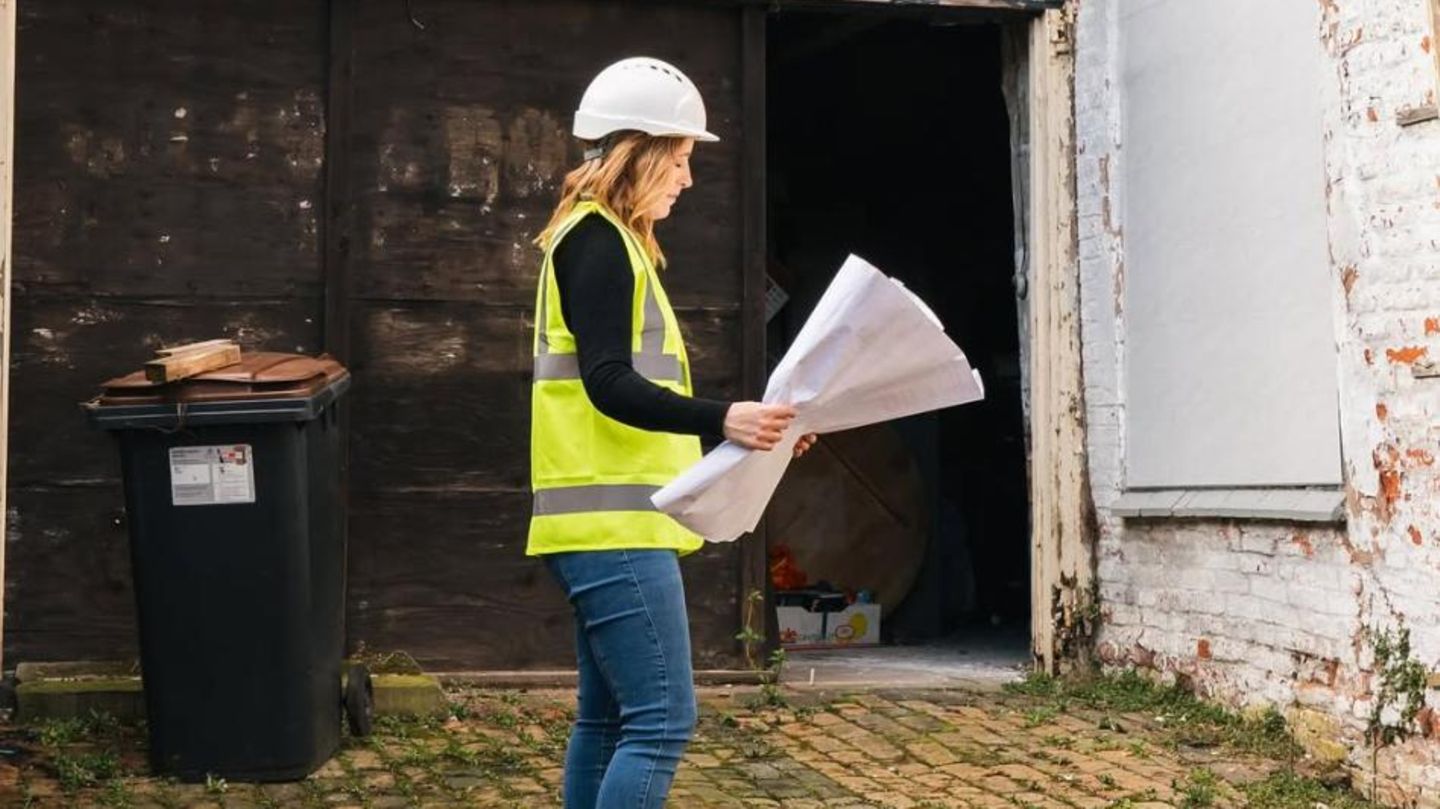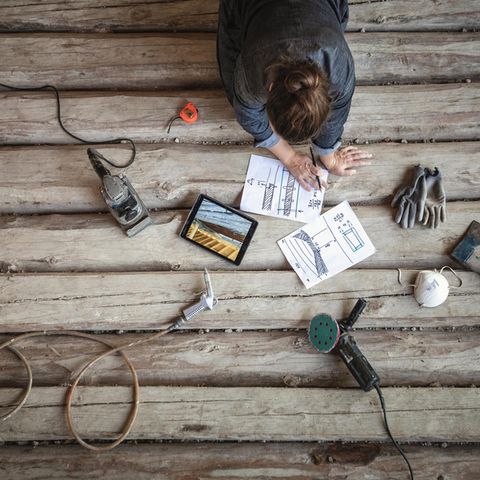property
£ 100,000 after the divorce – she starts with the “House Flipping”
Copy the current link
Add to the memorial list
“House Flipping”: Alexandra Fidoe dares to jump with £ 100,000 from the divorce. She buys dilapidated houses, renovates it and makes stately winnings.
In 2019 Alexandra Fidoe separated from her husband. From the sale of the common house, she received £ 100,000, but lost the roof over her head and had to take care of two children. The most obvious decision would have been to use the money as a down payment for a new home and to return to your old job in marketing.
She had given up this profession shortly before to have more time for the children and to support her parents as a project manager in renovating her house. But she was impressed by the opening of old walls. So she decided differently. Instead of a secure permanent position with pension provision and company car, she dared to take a risk: she got into the real estate industry, more precisely into the division of the so -called “House Flipping”. This means the favorable purchase of dilapidated houses, followed by a renovation and resale – ideally with a stately profit.
Experience as a manager
“It was brave, people keep going broke in the construction industry,” she told the “Telegraph”. She had no experience in construction in front of her parents, but as a manager in the food industry, she was used to project work. She gained initial experience with real estate in the renovation of her parents’ semi-detached house, a construction from the 1930s. This was not without challenges: the house was previously inhabited by a messie, and rooms and plots of land were accordingly. In addition, there was no company for the renovation. “I drove through the village by car and asked every construction worker if he wanted to work on my construction site.”
Location decides
Her parents were able to sell the house at a profit. This laid a foundation stone. Next, Fidoe struck himself. Before that, she had rented a house for herself and her children – below the market price. The farmhouse was part of a large ensemble, and Fidoe received a cheap rent because it supported the renovation of the buildings. “The landlord said he would increase the rent after the renovation was completed, but he did not do that. Instead, he said that we could stay as long as we wanted because we were good tenants.” In her home town of Hinckley in Leicestershire, she searched for her own facility. Her tactic was simple: she was looking for the worst house on the best street that she could afford.
“I bought a bungalow, the most dilapidated house I’ve ever renovated. I bought in the winter months, when you often do good business.” In three months she transformed the broken booth into a piece of jewelry. “People stretched their phone numbers through the door – the demand for a renovated bungalow in a good street was huge.” That went well, the next project less. The sale dragged on – the nightmare of every house flipper. Her financing as a developer was significantly more expensive than a long -term mortgage.
Old slaughterhouse
That was an apprenticeship for her not to put everything on one card again and to get away from expensive interim financing. From “buying to sell” she changed to “buy” to rent “, as she could quickly absorb a cheap mortgage in this model.
Her current project is an old Victorian slaughterhouse in which she wants to build four apartments. But opening up houses is not a pleasure that popular series suggests over “House Flipper”. “Many say: ‘I want to become a property developer because it brings a lot of money’, but there is hard work behind the scenes.” Fidoe benefited from her experience in the corporate world, which gave her confidence in negotiations.
House Flipping in Germany
There are other conditions in Germany. The tax framework in Great Britain is better, the bureaucratic rules of the game are more relaxed. It is easier to get bridging loans, and the dynamic real estate market is positive about the flipping trend. In Germany, on the other hand, the speculation tax and the three-object border, which forced a business in five years after three sales, make fidoes model. There are also high additional costs such as real estate transfer tax and emergency fees. Stricter building regulations and more expensive craftsmen would burden a project like the Victorian slaughterhouse, if not impossible.
The right moment was also crucial for Alexandra Fidoe – the separation from her husband. “If you divorce, you avoid everything. The first property was a kind of escape for me. But feeling uncomfortable is the key to growth.”
Sources: ,
kra
Source: Stern





